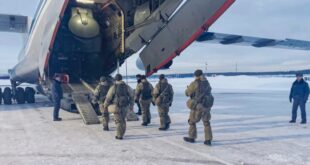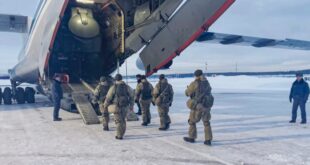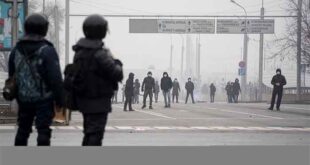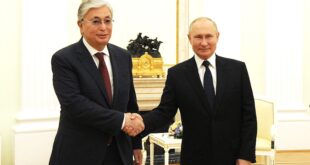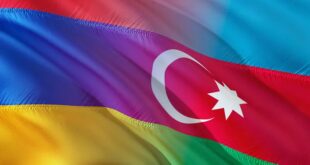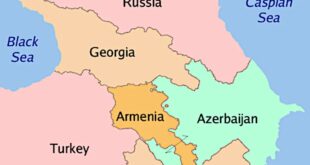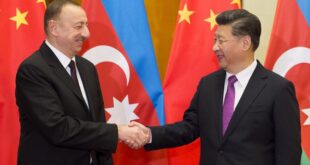Since its independence in 1991, Kazakhstan, a Central Asian Republic, witnessed its biggest public protest on 2 January 2022. The people of the western town of Zhanaozen stormed the streets, protesting against the halt of state subsidies on Liquefied Petroleum Gas (LPG), one of the primary vehicle fuels. The surge …
Read More »The Consequences Of Inviting Russian-Led CSTO Troops Into Kazakhstan – Analysis
Sparked by a small protest over a fuel price increase in the western oil town of Zhanaozen a few days earlier, angry crowds flooded the streets and squares of Kazakhstan’s major towns and cities on January 5, shouting their discontent with the authoritarian government’s domestic policies. Alarmed by the scale …
Read More »Kazakh President Gives Stark ‘Shoot-To-Kill’ Order Amid Unprecedented Uprising
President Qasym-Zhomart Toqaev has issued a stark warning to protesters in Kazakhstan that he has given security personnel a green light to “shoot to kill” even as the nation’s police forces, bolstered by a Russian-led troop contingent, appeared to be in control of most cities in Kazakhstan after dozens were …
Read More »Kazakhstan crisis heightens instability in Central Asia
The political crisis in Kazakhstan, which began on January 2 with mass protests against gas price hikes, has become a focal point of geopolitical and social tensions across Central Asia. With the support of the Kremlin, President Kassym-Jomart Tokayev’s government has cracked down on the protests with extraordinary violence, turning …
Read More »Gunfire Underway in Kazakhstan’s Almaty, Counterterrorist Operation Still Ongoing
According to authorities, initially peaceful protests in Kazakhstan, spurred by a twofold increase in fuel prices on January 1, swiftly devolved into deadly violence, killing at least seven police officers and dozens of attackers. Gunfire is underway in the center of Kazakhstan’s Almaty, and the authorities are conducting a counterterrorist …
Read More »Is Kazakhstan Russia’s Next Ukraine? – Analysis
With Russian troops massing on Ukraine’s borders, it’s not only Ukrainians who worry about what President Vladimir Putin may have in store for them. It’s Kazakhs too. For now, Kazakhs don’t have to be immediately concerned about Russian troop movements. What unsettles them is years of Russian rhetoric, spearheaded by …
Read More »Russian-Led Security Bloc To Send Peacekeeping Forces To Kazakhstan, Armenian PM Says
Peacekeepers from a Russian-led regional security alliance will be sent to Kazakhstan to help stabilize the country, the prime minister of Armenia announced on January 5 after an unprecedented wave of unrest in the oil-rich Central Asian nation that was sparked by a fuel price hike. Armenian Prime Minister Nikol …
Read More »Armenia Has Continued To Lose Land To Azerbaijan Since 2020 Ceasefire Declaration – OpEd
Many people assume that the 44-day war in 2020 ended with a new ceasefire line that both Azerbaijan and Armenia were committed to observing, Grant Mikhaelyan says. But in reality, Baku has continued a low intensity conflict that has allowed it to take control of land along that line; and …
Read More »Shifting Geography Of The South Caucasus – Analysis
South Caucasus’ shifting geography has been the single most important development in the region following the second Nagorno-Karabakh war. One year since the end of the second Nagorno-Karabakh war allows us to wrap up major changes in and around the South Caucasus. Most of the changes discussed in the scholarly …
Read More »China’s Growing Influence In The South Caucasus – Analysis
While the United States is adapting to the challenges of a multipolar world and a global geopolitical recalibration, the People’s Republic of China is employing its geo-economic tools to identify power vacuums in the international landscape and to fill the void of American leadership. The combination of former President Donald …
Read More » Eurasia Press & News
Eurasia Press & News
